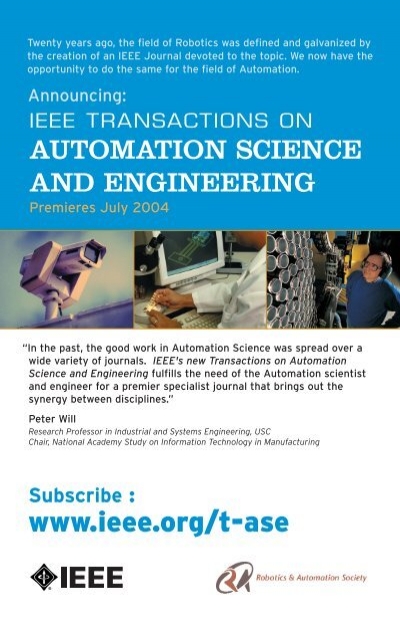多水翼艇弹性控制:处理致动器故障和姿态一致性错误数据注入
IF 6.4
2区 计算机科学
Q1 AUTOMATION & CONTROL SYSTEMS
IEEE Transactions on Automation Science and Engineering
Pub Date : 2025-07-23
DOI:10.1109/TASE.2025.3591792
引用次数: 0
摘要
考虑致动器故障、虚假数据注入、随机海浪干扰和拓扑传播效应等因素,研究了多水翼艇的姿态一致性问题。我们提出了一个博弈论的容错控制(FTC)框架,该框架集成了一个具有特定性能指标的复合控制器。在该框架中,同时考虑了本地和邻近节点的信息。期望的控制器,以及非理想的异常和干扰,被视为参与者,将FTC问题转化为一个多玩家非合作博弈。此外,利用单批评家神经网络(NN)来缓解与求解偏微分方程相关的挑战,从而促进了理想控制律的推导。与传统的基于局部信息的控制方法相比,该方法结合了邻域信息。它将故障、干扰和传播效应集成在统一的框架内进行最优控制,提高了FTC的有效性。我们在dSPACE平台上使用四飞行器场景进行了比较实验。结果表明,与其他两种方法相比,该方法可将局部跟踪误差的平均绝对偏差(MAD)降低至少28.00%,将标准差(STD)降低至少7.76%。从业人员注意事项:考虑到互联系统中的传播效应,本工作源于在现实世界干扰和执行器故障的情况下保持水翼船队姿态一致性的挑战。博弈论框架将FTC建模为统一架构中的控制器和异常之间的竞争交互,从而消除了单独故障诊断的需要并提高了效率。此外,神经网络取代了复杂的数学解决方案,使工程师能够在没有偏微分方程专业知识的情况下部署控制律。硬件在环实验验证了可行性,并为相关从业者提供了其他互联控制系统的弹性控制范例。本文章由计算机程序翻译,如有差异,请以英文原文为准。
Resilient Control in Multi-Hydrofoil Crafts: Tackling Actuator Faults and False Data Injection for Attitude Consensus
This paper addresses the attitude consistency problem in multi-hydrofoil crafts, considering actuator faults, false data injection, stochastic ocean wave disturbances, and topological propagation effects. We propose a game-theoretic fault-tolerant control (FTC) framework integrating a composite controller with a specific performance index. In this framework, both local and neighboring node information is considered. The desired controller, along with non-ideal anomalies and disturbances, is treated as participants, transforming the FTC problem into a multi-player non-cooperative game. Moreover, a single critic neural network (NN) is utilized to alleviate the challenges associated with solving a partial differential equation, thereby facilitating the derivation of the ideal control law. Compared to traditional local information-based control methods, the proposed approach incorporates neighborhood information. It integrates faults, disturbances, and propagation effects within a unified framework for optimal control, enhancing FTC effectiveness. We conduct comparative experiments using a four-craft scenario on the dSPACE platform. The results demonstrate that the proposed method reduces the mean absolute deviation (MAD) of local tracking error by at least 28.00% and the standard deviation (STD) by at least 7.76% compared to the other two methods. Note to Practitioners—This work stems from the challenge of maintaining attitude consensus in a hydrofoil fleet operating under real-world disturbances and actuator failures, considering the propagation effects in interconnected systems. The game-theoretic framework models FTC as a competitive interaction between the controller and anomalies in a unified architecture, eliminating the need for separate fault diagnosis and improving efficiency. Additionally, NNs replace complex mathematical solutions, enabling engineers to deploy control laws without specialized knowledge of partial differential equations. Hardware-in-the-loop experiments validate the feasibility and provide a paradigm of resilience control for other interconnected control systems for pertinent practitioners.
求助全文
通过发布文献求助,成功后即可免费获取论文全文。
去求助
来源期刊

IEEE Transactions on Automation Science and Engineering
工程技术-自动化与控制系统
CiteScore
12.50
自引率
14.30%
发文量
404
审稿时长
3.0 months
期刊介绍:
The IEEE Transactions on Automation Science and Engineering (T-ASE) publishes fundamental papers on Automation, emphasizing scientific results that advance efficiency, quality, productivity, and reliability. T-ASE encourages interdisciplinary approaches from computer science, control systems, electrical engineering, mathematics, mechanical engineering, operations research, and other fields. T-ASE welcomes results relevant to industries such as agriculture, biotechnology, healthcare, home automation, maintenance, manufacturing, pharmaceuticals, retail, security, service, supply chains, and transportation. T-ASE addresses a research community willing to integrate knowledge across disciplines and industries. For this purpose, each paper includes a Note to Practitioners that summarizes how its results can be applied or how they might be extended to apply in practice.
 求助内容:
求助内容: 应助结果提醒方式:
应助结果提醒方式:


